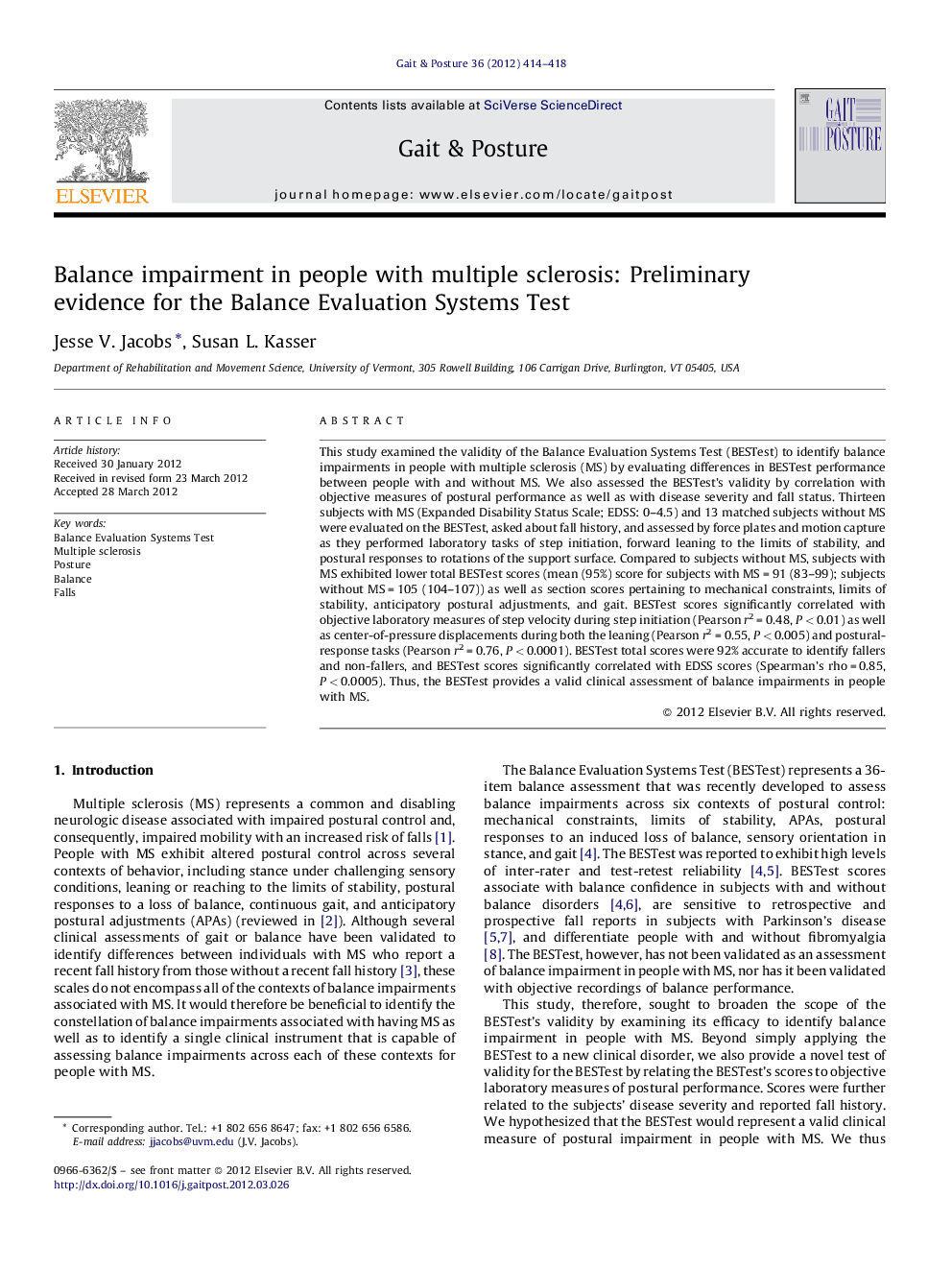| Article ID | Journal | Published Year | Pages | File Type |
|---|---|---|---|---|
| 6207778 | Gait & Posture | 2012 | 5 Pages |
This study examined the validity of the Balance Evaluation Systems Test (BESTest) to identify balance impairments in people with multiple sclerosis (MS) by evaluating differences in BESTest performance between people with and without MS. We also assessed the BESTest's validity by correlation with objective measures of postural performance as well as with disease severity and fall status. Thirteen subjects with MS (Expanded Disability Status Scale; EDSS: 0-4.5) and 13 matched subjects without MS were evaluated on the BESTest, asked about fall history, and assessed by force plates and motion capture as they performed laboratory tasks of step initiation, forward leaning to the limits of stability, and postural responses to rotations of the support surface. Compared to subjects without MS, subjects with MS exhibited lower total BESTest scores (mean (95%) score for subjects with MS = 91 (83-99); subjects without MS = 105 (104-107)) as well as section scores pertaining to mechanical constraints, limits of stability, anticipatory postural adjustments, and gait. BESTest scores significantly correlated with objective laboratory measures of step velocity during step initiation (Pearson r2 = 0.48, P < 0.01) as well as center-of-pressure displacements during both the leaning (Pearson r2 = 0.55, P < 0.005) and postural-response tasks (Pearson r2 = 0.76, P < 0.0001). BESTest total scores were 92% accurate to identify fallers and non-fallers, and BESTest scores significantly correlated with EDSS scores (Spearman's rho = 0.85, P < 0.0005). Thus, the BESTest provides a valid clinical assessment of balance impairments in people with MS.
⺠Subjects with and without multiple sclerosis (MS) were evaluated on the Balance Evaluation Systems Test (BESTest). ⺠The BESTest was validated against lab measures of postural control, and the subjects' disease severity and fall history. ⺠Subjects with MS exhibited significantly lower BESTest scores than subjects without MS. ⺠BESTest scores significantly associated with lab measures, disease severity, and fall history. ⺠The BESTest offers a valid clinical assessment of balance impairments in people with MS.
